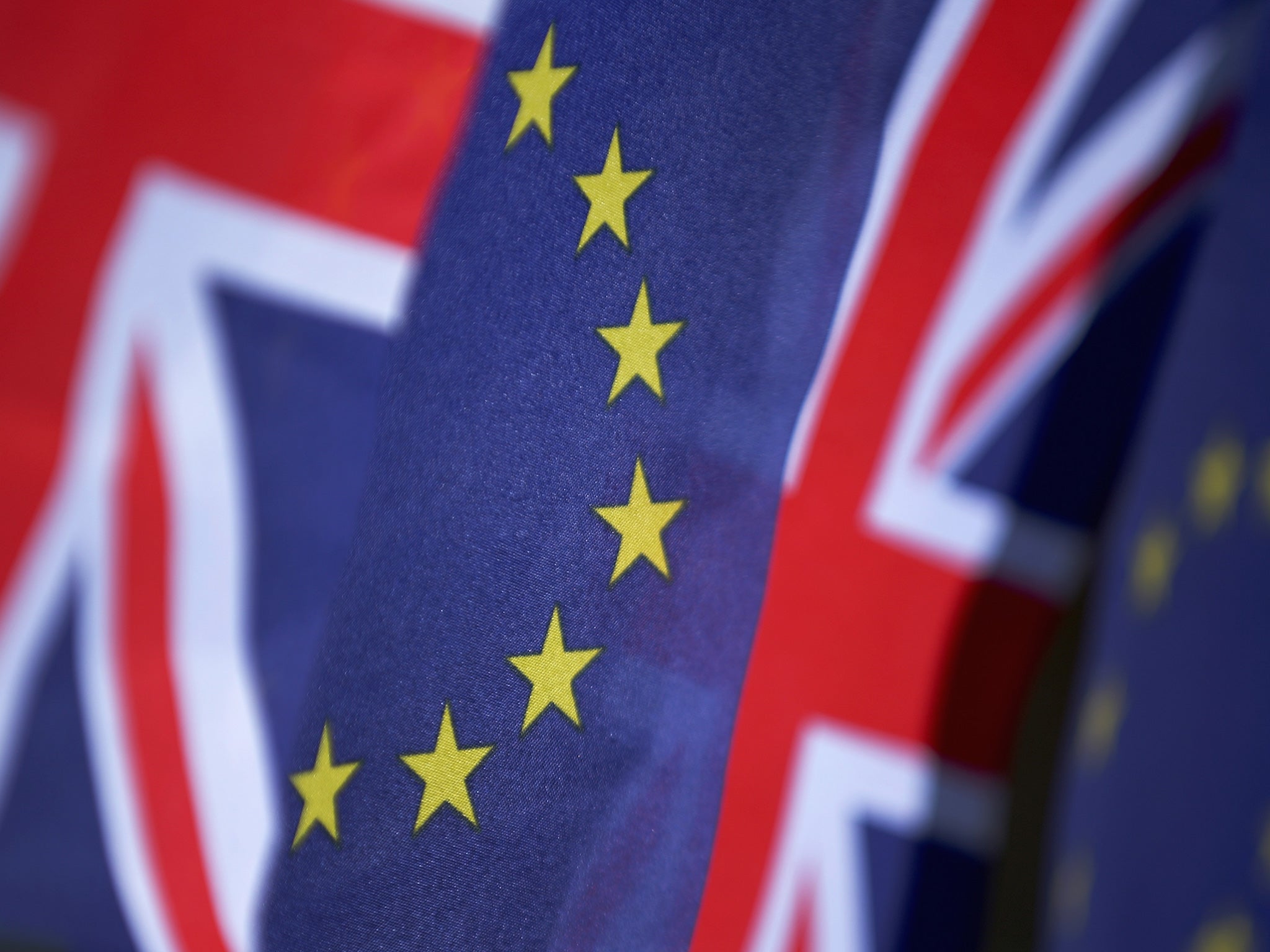US defence chiefs warn Brexit will endanger Europe
Former secretaries of state and defence say the UK cannot rely on the US once its power in Europe is ‘weakened’

Your support helps us to tell the story
From reproductive rights to climate change to Big Tech, The Independent is on the ground when the story is developing. Whether it's investigating the financials of Elon Musk's pro-Trump PAC or producing our latest documentary, 'The A Word', which shines a light on the American women fighting for reproductive rights, we know how important it is to parse out the facts from the messaging.
At such a critical moment in US history, we need reporters on the ground. Your donation allows us to keep sending journalists to speak to both sides of the story.
The Independent is trusted by Americans across the entire political spectrum. And unlike many other quality news outlets, we choose not to lock Americans out of our reporting and analysis with paywalls. We believe quality journalism should be available to everyone, paid for by those who can afford it.
Your support makes all the difference.A large group of foreign and defence chiefs in the US and in Europe have warned that Brexit would leave the UK “dangerously weakened” and unable to rely on its “special relationship” with the US to regain power.
Five former Nato chiefs and 13 former US secretaries of state and defence are among those who have cautioned against leaving the EU, in letters to The Times and The Telegraph.
A roll call of chiefs from every White House administration from the past 40 years said the UK’s “place and influence in the world would be diminished and Europe would be dangerously weakened” if people voted to leave on 23 June.
In a boost to the Remain campaign, the letter to The Times, which included signatures from former US secretary of state Madeleine Albright, Ronald Reagan-era secretary of state George Shultz and ex-CIA chief Leon Panetta, has inflamed the debate around whether the UK would be more vulnerable inside or outside of Europe.
In The Telegraph, five former Nato chiefs – including Lord Carrington, who served during World War II and is the last surviving member of the 1951-1955 government of Winston Churchill – said Brexit would be “very troubling”.
They argued that the EU is a “key partner” and the two must work together to “stave off instability in the region”.
Their letter was also signed by former Spanish foreign minister Javier Solana, Tony Blair’s former defence secretary Lord George Robertson, a previous Dutch foreign minister Jaap De Hoop and former Danish prime minister Anders Fogh Rasmussen.
Their letter reads: “As former Secretaries General of Nato, we have followed the British EU debate carefully and with growing concern. Given the scale and range of challenges to peace and stability we collectively face, the Euro-Atlantic community needs an active and engaged United Kingdom.”
The letter pointed to sanctions on Russia and Iran which have been “led from within the EU by the UK."
“At such a time of global instability, and when Nato is trying to reinforce its role in Eastern Europe, it would be very troubling if the UK ended its membership of the European Union.”
The EU referendum debate has become increasingly focused on the military as Prime Minister David Cameron invoked a speech of Winston Churchill this week, claiming that leaving Europe could threaten war on the continent.
Former London mayor Boris Johnson attacked Mr Cameron’s comments, saying the EU had become a “force for instability and alienation” and that Nato had guaranteed peace in Europe.
He dismissed the claim that he was a “Putin apologist” for saying that the EU played a role in allowing the conflict in Ukraine to happen.
The Leave campaign has also been joined by Crispin Blunt, head of the Commons foreign affairs committee, who blamed British “neuralgia” for preventing good EU defence policy.
Meanwhile the US is seeking to bolster support for its Nato allies in Europe. Last month it sent two of the world’s most advanced warplanes to a Romanian airbase near Ukraine and then onto England in a show of defiance against Russia.
President Barack Obama also warned that UK-US trade could take 10 years to put into place after Brexit.
Join our commenting forum
Join thought-provoking conversations, follow other Independent readers and see their replies
Comments